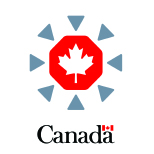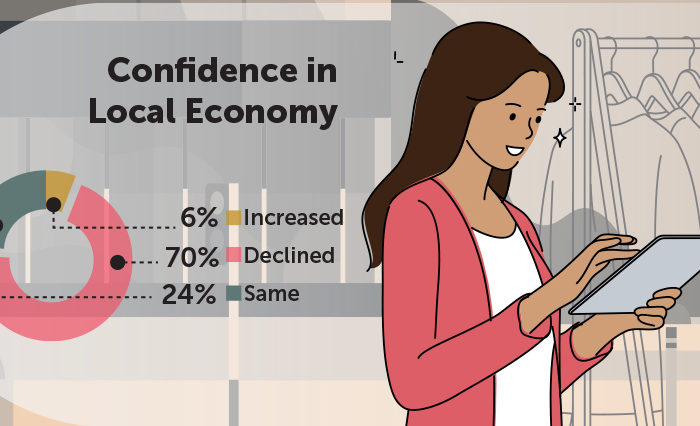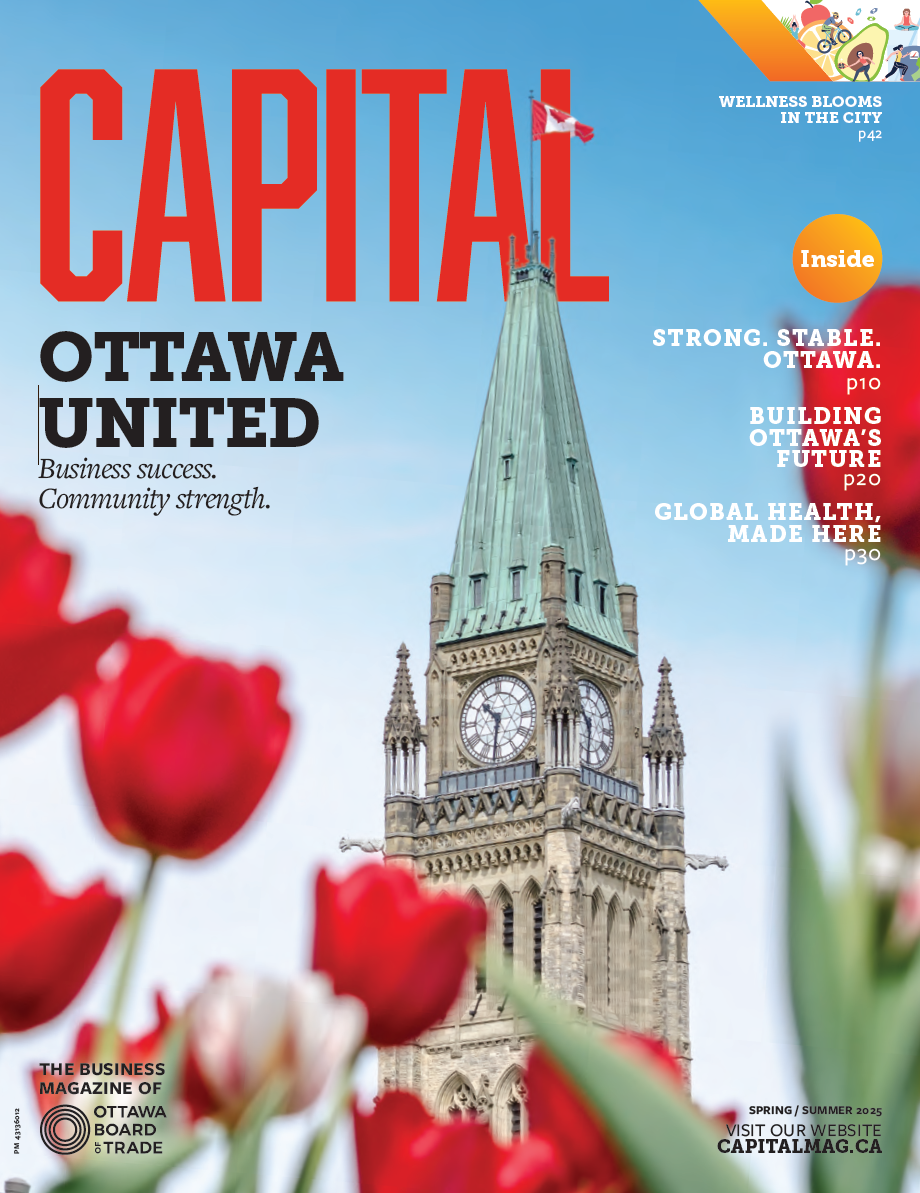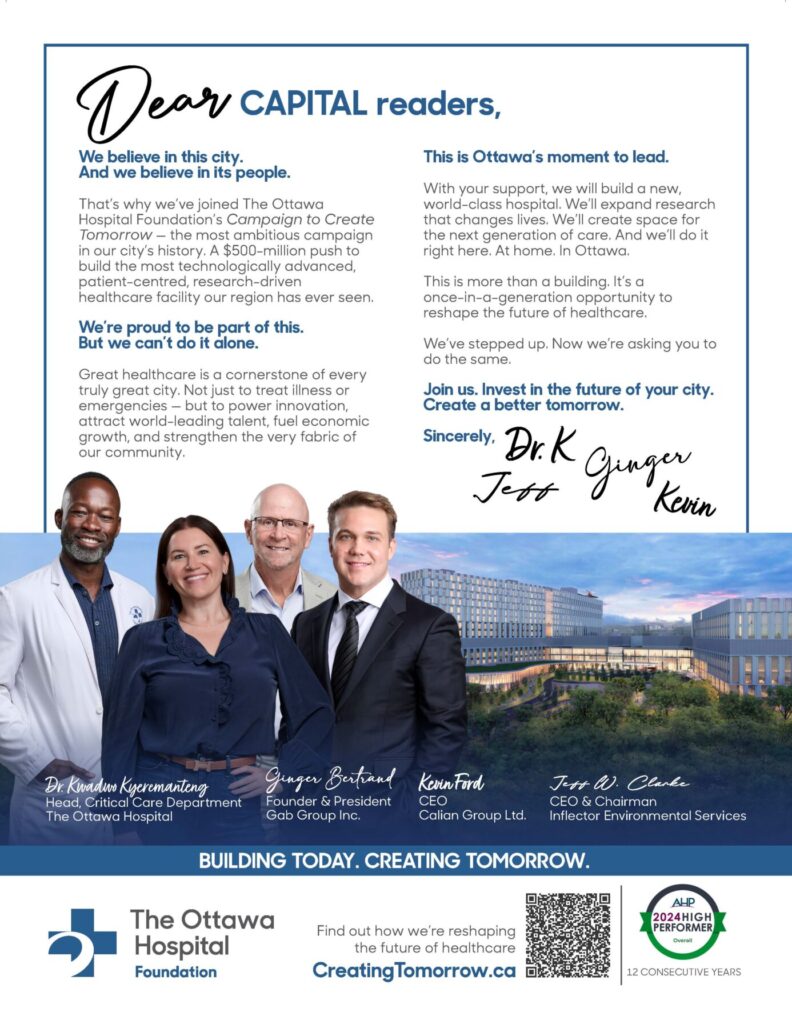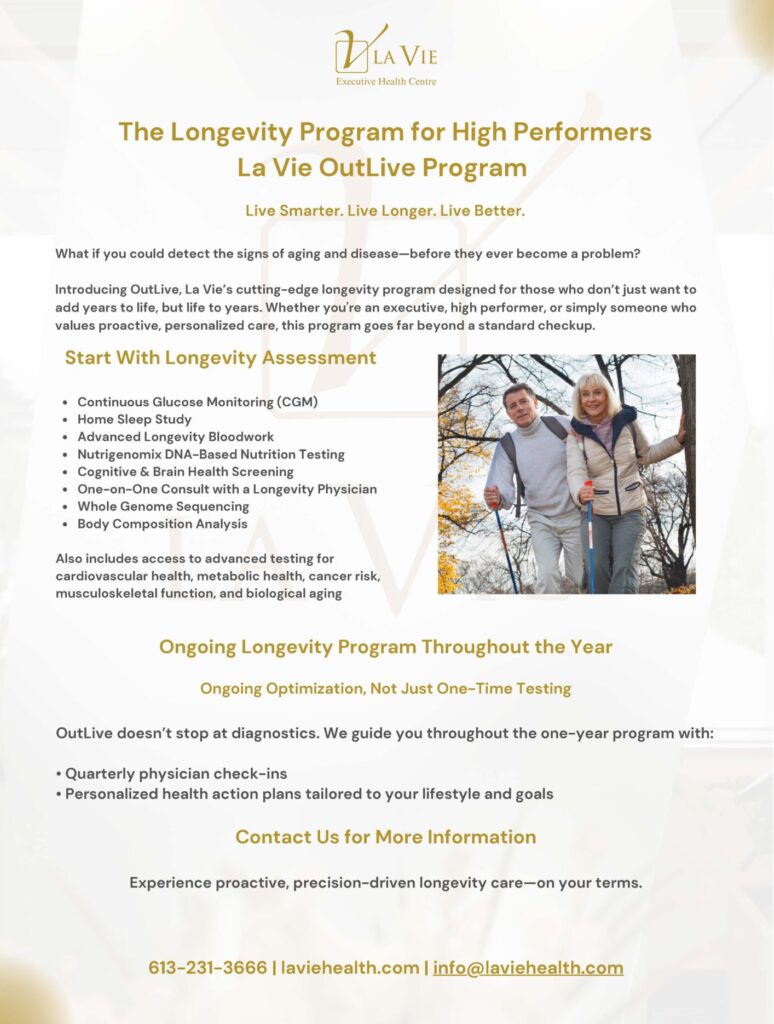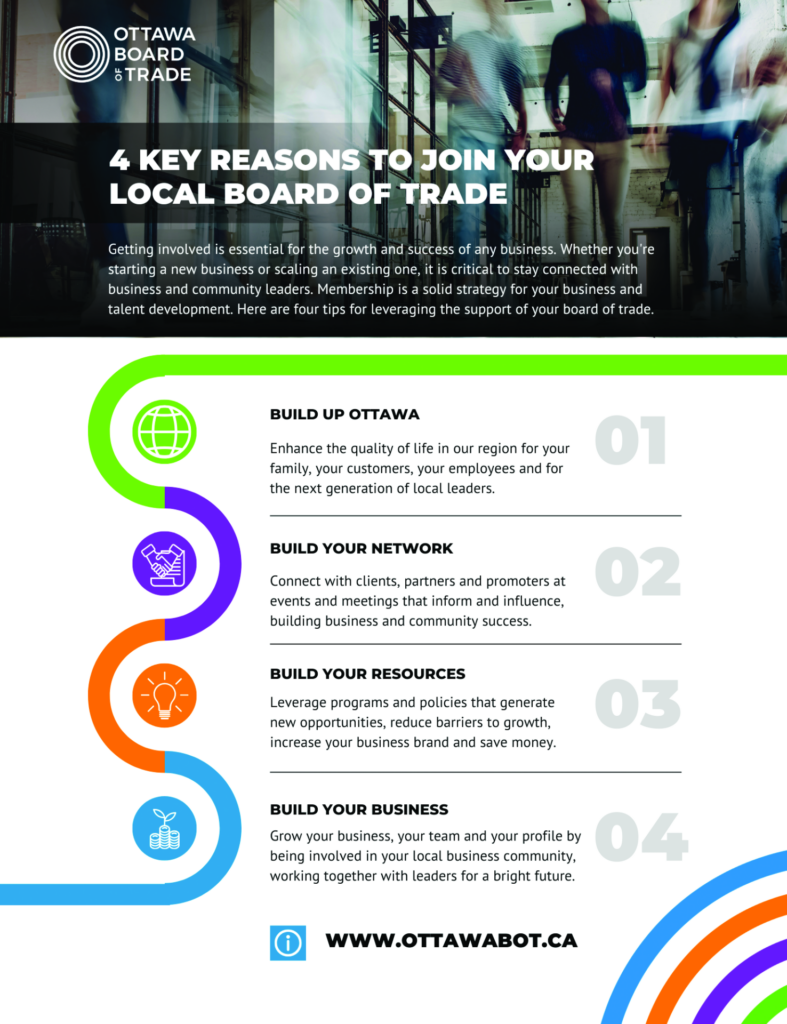Feature: COVID Highlights Symbiotic Relationship Between Health, Business

By Jeff Buckstein
Ottawa’s business community has stepped up to assume a key leadership role in promoting health during the COVID-19 pandemic crisis, says Vera Etches, Medical Officer of Health for Ottawa Public Health (OPH).
“Business got it right. They took an approach that it was important to prioritize the health of their employees and the public. This has made a difference – even beyond their business – in terms of being a role model to others,” she says.
Local businesses have promoted the usage of masks, set up distancing, and sought to find new and innovative ways of conducting business, such as virtually, and many have paid the salaries of employees who needed to be home because they were sick or had to care for somebody.
“The message they send is that they don’t want to do things in a way that causes risk and growth in the transmission of the virus because that will be bad for both business as well as for the health of the population. I think that’s been a really helpful perspective,” says Dr. Etches.
COVID-19 has also resulted in an expanded OPH outreach to the local business community.
“It’s been extremely helpful to me to talk to business partners like the Ottawa Board of Trade. They were instrumental in helping us understand there was support for a policy to require masking to protect employees in workplaces,” says Dr. Etches.
OPH and the Board of Trade have collaborated to hold business reopening safety webinars, and Dr. Etches expects that partnership with business, in order to promote the health of the population, will continue to grow in the future.
“This is a foundational shift for us,” she says.
But more still needs to be done in terms of influencing behaviour, particularly away from the office.
“Businesses can help employees understand if they’re going to gather after work for a drink or something like that, that increases their risk of transmission in the community. So, we are encouraging peoples’ actions outside of the workplace to align with public health measures – limiting contacts, and using distance and masks if indoors,” Dr. Etches says.
The challenges in fighting COVID-19 have highlighted the close relationship between business and health. “COVID has really underlined that businesses are important for the health of the community first and foremost by keeping people employed. People need income. They need the supports of employment for health,” says Dr. Etches.
The experience of seeing certain businesses struggle to survive COVID-19 therefore highlights the importance to society of being able to help them stay afloat for as long as possible because preserving jobs contributes to the overall health of the community.
“We also need to think about employment opportunities for people who have lower income and about the protections that can provide – for example, sick leave if somebody needs to stay home so that they don’t put others at risk for coming into contact with the virus,” she adds.
On a personal level, Dr. Etches has been impressed by how Ottawa has risen to the occasion.
“I like to focus on how adaptable people have been, and how motivated people have been to care for one another. A really positive aspect of what we’ve seen in our community and across the country is that people have learned new behaviours that provide protection,” she says, citing how the wearing of masks, physical distancing, and people staying home when sick have helped to control the pandemic.
But COVID-19 has also exposed societal concerns, including the difficulties that people experience when they are socially isolated, putting a spotlight on the importance to human health of finding new ways to connect.
Another problem is that disadvantaged populations have been hit harder by the pandemic. People with lower income, for instance, may have a job that puts them at greater risk of exposure to the virus and they might also live in housing where it is harder to self-isolate.
“When we look at the counts of people who have tested positive we’ve seen that, unfortunately not everybody has the same risk. We need to continue to look at those inequities. We see that as more of a systemic issue,” says Dr. Etches.
Dr. Etches is concerned with the uptick in COVID cases in the community as the fall and winter flu season approaches. Currently “that is clearly manageable in terms of keeping it out of hospital so we’re aiming for an approach where that stays the case,” she says.
The worst-case scenario would occur if the rate of COVID-19 transmission in the community rises too fast and potentially spiking numbers overwhelm hospitals and long-term care homes, with public health testing and tracing unable to keep up with the surge.
“I think that both best and worst-case scenarios are possible, and the deciding factor is going to be how much we practice those new behaviours of physical distancing and masks, and staying home when we’re sick. Those are the things that keep the virus down and I’m hopeful we will make it through with manageable levels,” says Dr. Etches.
She acknowledges that will be a challenge as people must be indoors more in the colder weather, but that OPH is working to get the message out. “We’re looking to reinforce on the social side that you need to limit contact in gatherings that people do in their private homes where they’re not wearing masks or where they cannot distance,” Dr. Etches stresses.
The Ottawa community can help strike an ideal balance between economic prosperity and achieving the health goals of OPH amidst the pandemic challenges by supporting local businesses through alternative means of investment, such as through virtual purchases, and by continuing to adhere to proper social distancing and other recommended practices, says Dr. Etches.
Businesses can also promote and organize their own influenza immunization drives to help keep respiratory illness low in the community, she adds.
Visit Ottawa Public Health for more information
Visit the following links for economic support and recovery information

